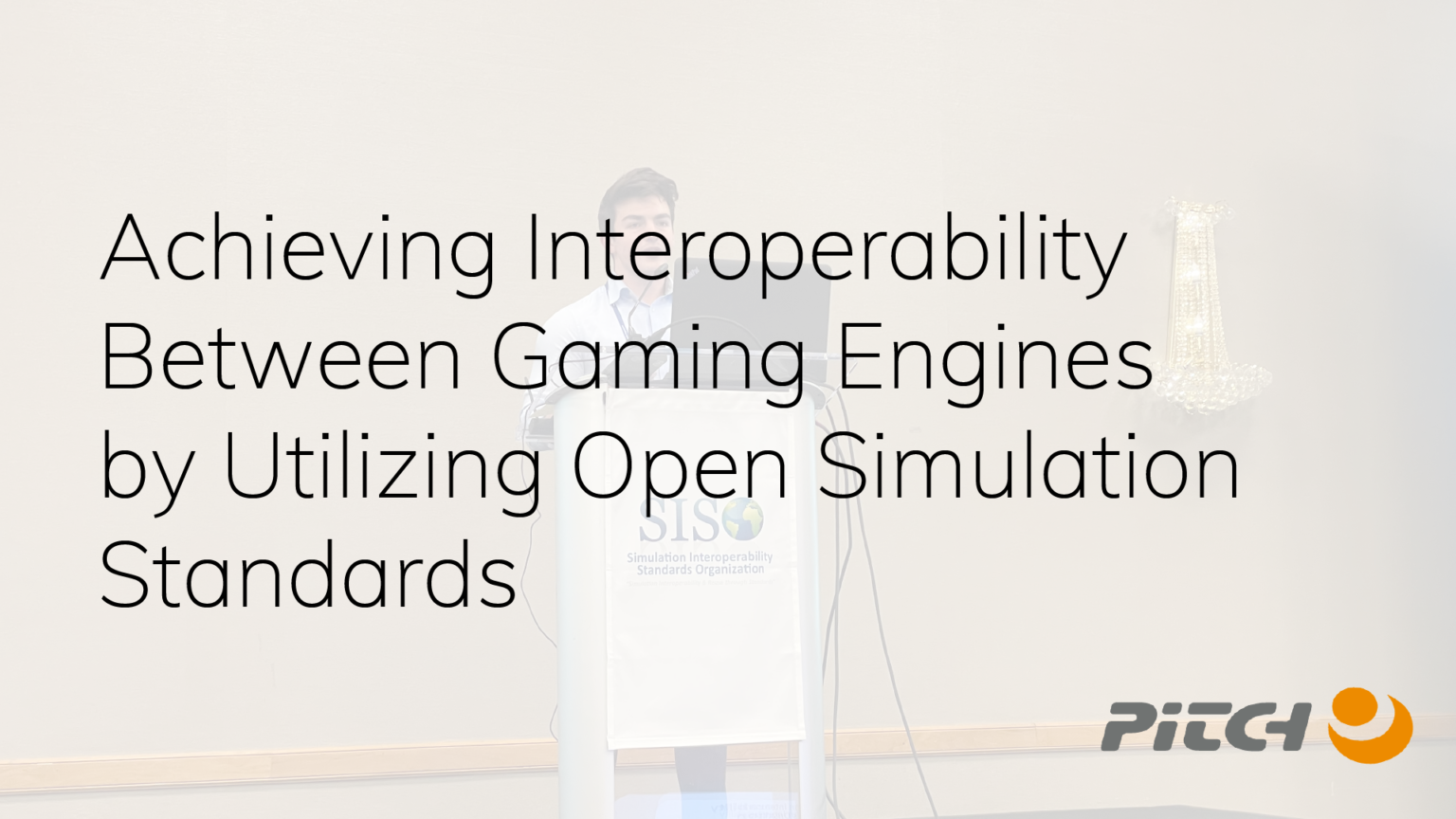With the increasing availability of game engines and game engine content, it is becoming more and more cost effective for new simulators to use these game engines as starting building blocks. This paper was first presented at the SISO SIW, February 2023 by Garrat Weblin.
With decades of research and development already done in the gaming industry, existing game engines, like Unreal Engine and Unity, make use of powerful gaming technologies like physics, artificial intelligence (AI) and sound engines. Many of these game engines offer regular updates to meeting the changing demands and to embrace the latest technical advancements. Making use of these existing technologies, the cost and time to market of new simulation systems can be greatly reduced.
In a previous paper, Unreal Engine was used to create an Unreal based simulator using High Level Architecture (HLA) and Real-Time Platform Reference Federation Object Model (RPR FOM). Using the Unreal Engine brought its own benefits and complications, related to both general simulation issues and lack of support in the Unreal Engine.
This paper will go into more detail regarding experiences using Unreal Engine and Unity, the benefits and problems faced, and the findings from this academic project exploring innovative approaches to game engine interoperability for future solutions.
An academic project in cooperation with Brunel University London undertook a study to replicate the work done with Unreal Engine within Unity. Using open standards, a Unity plugin was created to connect a Unity world to a HLA federation. This allowed Unreal Engine and Unity to connect to a HLA federation using RPR FOM and to communicate and interact with each other. As part of this study a number of tests were carried out using the Unity plugin. The plugin is able to send and receive object updates to achieve interoperability, this is also verified with the use of a cloud RTI.
Testing on the plugin showed that the geospatial data conversion is accurate and Unity’s performance is not affected by use of the plugin. As with Unreal Engine, Unity suffers from general simulation challenges, like coordinate conversions, terrain, and 3D models, as well as these, some of the issues not only exist between existing simulators and new game engine based simulators, but between the games engines themselves.
Today, game engine applications stretch beyond the commercial entertainment industry. Industry and academia frequently build interoperable simulators that are used for research in many different fields including aerospace, defense, medical, environmental, and cyber security. Utilizing advancements already made in modern game engines a head start can be gained in physics, visuals, and AI modeling and simulation. This enables much faster development than traditionally has been possible. Open standards provides the ability to integrate multiple simulators utilizing different game engines.

